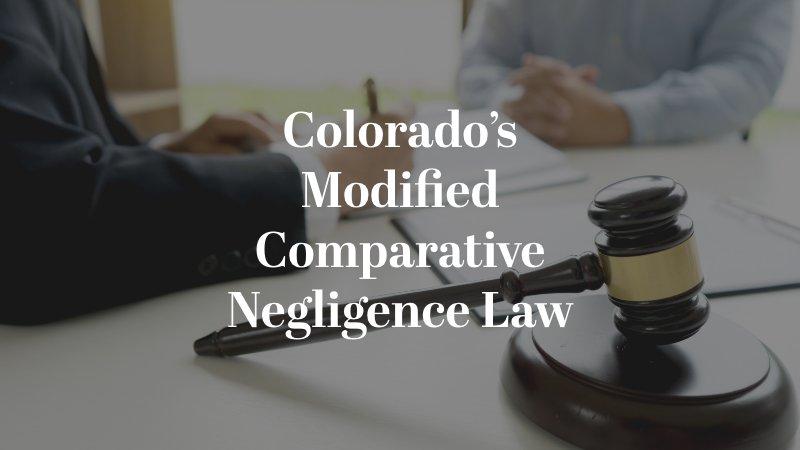If you are injured in an accident caused by someone else’s negligence, such as a car accident or slip and fall, but you also contributed to the accident, Colorado’s modified comparative negligence law can come into play. This law can impact whether you can still file a Denver personal injury claim against the negligent party and how much compensation you can recover. Here is what you need to know about this critical law in Colorado.

What Is Comparative Fault?
Comparative negligence is a legal principle that compares the negligence of the accident victim and the defendant. In some states, being at all responsible for the accident can erase any chance of financial recovery. In others, you can seek compensation even if you are 99% at fault for the accident, called pure comparative negligence.
While comparative fault is a legal principle often applied in motor vehicle collisions, it can also apply in other types of cases. Some examples when comparative fault may arise include:
- A motorist was speeding when a driver turning left crashed into them.
- A driver changed lanes while a truck driver was executing a wide turn.
- A motorcyclist was lane-splitting when hit by a car.
- A pedestrian was distracted while hit by a motor vehicle.
- A business customer slipped and fell after not seeing a “wet floor” warning sign.
These factors do not necessarily mean you cannot file a legal claim. However, they may be considered when determining how much compensation you deserve. Comparative fault can reduce the amount of financial compensation you may be able to receive by subtracting out your percentage of the damages you sustain.
What Is Contributory Negligence?
Contributory negligence is a harsh legal doctrine that prevents accident victims from recovering any compensation if they are at all at fault for the accident, even 1%. Most states do not use this system because it is often considered inherently unfair to accident victims.
What Is Colorado’s Modified Comparative Negligence Law?
Colorado uses a middle-ground approach between the extremes of pure comparative negligence and contributory negligence principles. Here, if you contributed to an accident in which you are injured, you can seek compensation for your injuries as long as you are not more than 50% at fault for the accident under Colorado law. Your damages are reduced proportionately by your degree of fault.
An Example of Colorado’s Modified Comparative Negligence Law
Suppose you are driving when you hear a ping from your phone. You look down. Suddenly, another driver who was running a red light hits you. Because you were distracted, the insurance company claims you are 10% at fault for the accident. You suffered $100,000 in damages, so your damages would be reduced by your 10% of fault or $10,000 because of the modified comparative negligence rule.
Determining Fault for an Accident
Insurance companies conduct an investigation after a claim is filed to determine fault and whether the at-fault party’s liability insurance coverage applies. However, these companies are personally invested in minimizing the amount they pay out in claims, so they may try to wrongly blame accident victims to try to shirk part of their responsibility.
You may be able to overcome this by hiring an experienced auto accident lawyer from Dulin McQuinn Young who can conduct an independent investigation and gather strong evidence to prove the other driver was mostly or entirely at fault for the accident. Even if you shared part of the blame for the accident, you may not be as responsible for the accident as the insurance company is claiming. Your lawyer may be able to convince the insurance adjuster of this.
Alternatively, if the insurance company has denied your claim or is trying to assign too much blame to you under the circumstances, you can take the case to court and have a judge or jury decide who was at fault and to what degree. Either way, you will be in good hands with our trial lawyers. We can discuss your claim and your legal rights when you call us at (303) 246-1111 for a free consultation.